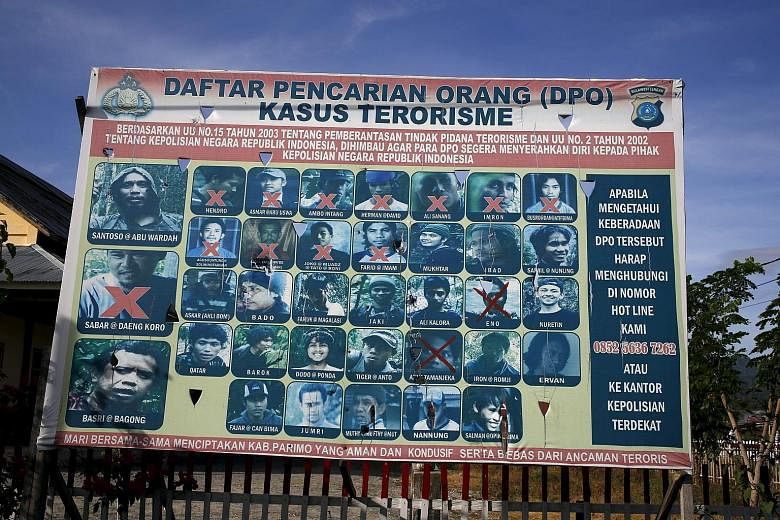Indonesia plans to require Islamic clerics who preach on television to have "blessings", a form of certification, from an Islamic organisation amid rising complaints against intolerant views spread on air.
The Indonesian Islamic Ulema Council (MUI) has been asked by the government to draw up guidelines that official Islamic organisations like Nahdlatul Ulama (NU) and Muhammadiyah - Indonesia's largest and second-largest respectively - can use for drawing up their own criteria on recognising clerics who preach on TV.
NU and Muhammadiyah have a combined membership of more than 80 million across Indonesia, which has a population of 250 million people, more than 85 per cent of whom are Muslim.
Local television stations - the number of which has been mushrooming in the past few years - have been the biggest target of new complaints, according to the national counter terrorism agency BNPT.
Such stations cover a city, regency or a whole province. There are 34 provinces and 500 cities and regencies in the country.
As of last year, there were more than 390 television stations across the country, according to the press council.
A few new TV stations were set up every week last year. There are no figures available for this year yet. Of the more than 390 TV stations, more than 10 are national stations.
TV preachers first appeared on national television networks in the 1990s and began to gain popularity more than a decade ago. They started appearing on local stations more than five years ago.
Intolerant views by TV preachers began surfacing a few years back.
BNPT has been encouraging local community leaders and non-governmental organisations which operate within their respective communities to help counter ideas of intolerance spread on television.
"Now, we are going to try to clean this up. Next year, we hope it will be clean," Coordinating Minister for Political, Legal and Security Affairs Luhut Pandjaitan told The Straits Times in his office last week.
"It is not a licence, but a blessing from MUI," Mr Luhut said of the guidelines, stressing that they were not a form of government control. He added that religious preaching should, to some extent, also touch on nationhood.
Indonesia needs laws and regulations that allow the authorities to prosecute anyone for hate speech, terror analyst Mardigu Wowiek Prasantyo told Pikiran Rakyat daily.
Now, anyone in the country can get away with insulting religions other than his own and provoking others to do violent acts in the name of a religion, he added.
Banten province's police chief, Brigadier-General Boy Rafli Amar, agreed, noting that hate speech can encourage an act of terror.
Banten, in western Java, is the home province of Imam Samudra, one of the trio of convicted bombers executed in 2008 for their role in the near simultaneous attacks in 2002 on two nightclubs in Bali that killed 202 people, most of whom were foreign tourists.
Banten has detected that five of its residents had gone to Syria to join the Islamic State in Iraq and Syria (ISIS), including Umar Jundul Haq, 19, the oldest son of Imam Samudra, who police said was killed in a recent battle there.
Brig-Gen Boy believes it is important to teach young Indonesians about nationhood to help curb their desire to go overseas as well as their willingness to sacrifice their lives fighting causes overseas.
"You'd better defend your own country than some foreign power in the Middle East," he told The Straits Times last week.
He added that clerics who have the "right knowledge" about Islam should be given a bigger stage. "Don't give room to radical clerics who use Islam to spread hatred."
Asked how the government would mete out punishment should clerics continue to spread intolerant views, Mr Luhut said: "We will punish the television owners. Giving punishment is not difficult."

